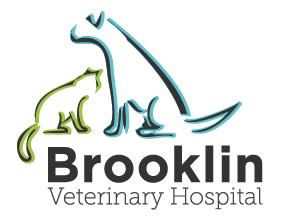Library
-
Medical waste includes needles, syringes, body parts, bodily fluids, feces and medications among other things. This handout addresses some of the ways such waste can be safely disposed.
-
Many dogs love to get out to socialize and exercise with their canine friends and dog parks are their go-to spots for getting together. Proper etiquette, from both you and your pup, will allow everyone to enjoy the park safely and courteously.
-
Tumors of the prostate are relatively uncommon in dogs and extremely rare in cats. Clinical signs include bloody urine, or straining to urinate or defecate. Metastasis to the pelvic bone and/or lumbar spine is likely. Diagnosis and treatment options are discussed. Prognosis is considered poor.
-
Prostatic disease in cats is uncommon and, as a result, relatively little is known about these conditions. Enlargement of the prostate is a common sign with most prostatic diseases and may be noted by your veterinarian on a rectal exam. Other diagnostic tests may be required to determine the cause of your cat's condition.
-
Prostatic disease can be uncomfortable for a dog, particularly if it causes compression of the urethra or colon. Because there are many diseases of the prostate, it is necessary to perform several tests to determine the exact cause of a patient's condition. This handout provides explanations of the seven most common conditions affecting the prostate and the corresponding approaches to treatment.
-
The word enteropathy means any disease of the intestinal system. Protein-losing enteropathy (PLE) is not a specific disease, but rather describes a group of diseases that cause the loss of proteins from the bloodstream into the gastrointestinal (GI) tract.
-
The word enteropathy means any disease of the intestinal system. Protein-losing enteropathy (PLE) is not a specific disease, but rather describes a group of diseases that cause the loss of proteins from the bloodstream into the gastrointestinal (GI) tract.
-
Proventricular dilatation disease (PDD) is a very serious and often deadly disease affecting a wide variety of parrot species. Symptoms often involve one of the following conditions; vomiting, weight loss, passing undigested seeds in the stool or show neurologic signs. Avian Bornavirus infection has been linked in some cases to PDD.
-
Pruritus (itching) is a very common skin disorder that can be seen due to allergies or infections affecting the skin. The condition may be resolved if an underlying cause can be identified. Consult your veterinarian about what can be tested for and what treatments can be effective for relief.
-
Psittacine beak and feather disease (PBFD) is a serious condition in parrot species for which there is no cure. The highly contagious virus attacks fast-growing epithelial cells, commonly causing visibly abnormal formations of the beak and/or feather follicles. The clinical signs vary depending on the species of bird and the age at which it was infected. Diagnostic testing is available and precautions must be taken when purchasing a new bird.



